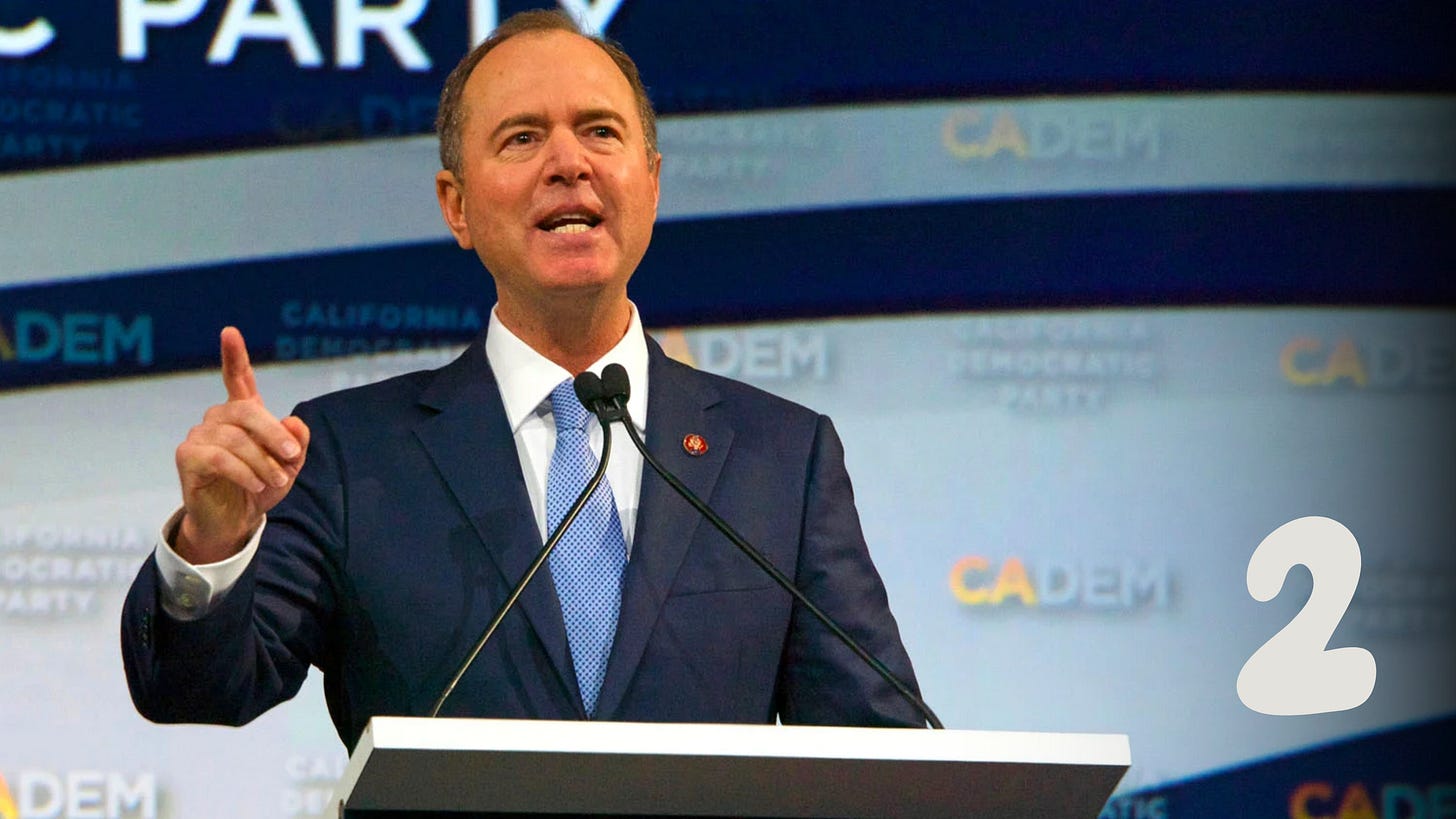🎉 Nvidia Competition, Rep. Schiff's IP Fight, Adobe & Apple Invest Heavily in AI
Intel's Innovator Dillema, Ethical AI Training Get's a Voice in DC, Adobe Plays Catchup, Apple Goes All In on AI
Welcome to the second edition of AImpulse, a five point summary of the most significant advancements in the world of Artificial Intelligence.
Here’s the pulse on this week’s top stories:
What’s Happening: Intel just unveiled its Gaudi 3 AI chip at the company’s Vision event, taking direct aim at Nvidia's dominance and offering enterprises an open, flexible alternative for deploying generative AI at scale.
Gaudi 3 offers a 50% improvement in training and inference speeds compared to Nvidia's H100 chip, alongside a 40% increase in energy efficiency at a reduced price.
These chips are set to be released in the second quarter of 2024, with performance levels anticipated to match Nvidia’s H200 series.
Intel has also unveiled a broader AI strategy, featuring an open enterprise AI platform, the latest Xeon processors, and additional innovations.
Why it matters: Already holding a dominant position in the market and with the upcoming release of its upgraded Blackwell chip line, Nvidia is unlikely to be overly concerned by the launch of Gaudi 3. However, given the exponential growth in AI demand, the chip market has ample room to accommodate multiple successful players.
What’s Happening: Rep. Adam Schiff has introduced a bill designed to make the use of copyrighted content in AI model training more transparent and ethical. The bill seeks a balance between encouraging innovation and upholding the rights of creators.
Rep. Adam Schiff has proposed a bill mandating the disclosure of copyrighted materials in AI training datasets.
Under the proposed legislation, companies would need to report the copyrighted content in AI datasets within 30 days after the AI system is released to the public.
The bill also has retroactive provisions, requiring existing AI systems to disclose their use of copyrighted materials within 30 days following the enactment of the legislation.
Additionally, the legislation calls for the creation of a publicly accessible online database by the Register of Copyrights to house these notices.
Why It Matters: The bill aims to protect and fairly compensate artists and content creators in this new age of AI. It sets guidelines for ethical AI development, tackling issues of copyright infringement and the unauthorized use of creative materials and underscores the difficulty of promoting technological progress while upholding respect for intellectual property rights.
What’s Happening: Adobe just introduced a slew of new AI capabilities coming to Adobe Premiere Pro, aimed at transforming video production — while also teasing third-party integrations and a Firefly Video model in development.
New AI-powered tools in Premiere Pro will enable users to extend video clips, add/remove objects from scenes, and generate B-roll footage using prompts.
A new proprietary AI model called Firefly Video will join Adobe's existing lineup of Firefly models for image, vector, design, and text effects.
Adobe is also working on integrating third-party AI models from companies like OpenAI, Runway, and Pika Labs into the platform.
AI-powered audio editing features will be available in May, including intelligent fade handles, category tagging, and enhanced waveforms.
Why it matters: Adobe’s demo video shows a wild look into the AI-powered future of video production, where edits are just a prompt away. Third-party integrations also reflect Adobe’s desire to remain the editing platform of choice, providing optionality that gives users the best experience — even if that isn’t always Adobe’s models.
What’s Happening: Apple is reportedly gearing up to overhaul its entire lineup of Macs with an upcoming M4 chip family — which will place a heavy emphasis on AI capabilities.
The M4 chips are nearing production and will come in at least three main varieties: entry-level Donan, high-performance Brava, and top-end Hidra.
Apple plans to update every Mac model with M4 chips, with releases starting in late 2024 and extending into early 2025.
Initial M4 refreshes will include new iMacs, MacBook Pros, and Mac Minis, followed by MacBook Airs, Mac Studio, and Mac Pro.
More details and features are expected at the company’s developer conference on June 10.
Why it matters: With slumping Mac sales and Apple seen as lagging behind in AI, a rapid M4 transition with next-gen capabilities could inject some serious energy into the device lines. Expect some fireworks in June — with Apple likely itching to publicly announce its entrance into the AI frenzy.
What’s Happening: ElevenLabs and Pika Labs launched FilmFAST, a 72-hour competition encouraging creators to generate short films using AI tools.
Adobe is reportedly offering creators an average of $3 per minute for video submissions to train its AI text-to-video generator, aiming to catch up with competitors like OpenAI's Sora.
Getting professionals filmmakers to adopt emerging AI tools will help validate the immense R&D being thrown at training these models.
Why It Matters: With upstarts like ElevenLabs and Pika building momentum, Adobe is determined to maintain its market dominance in the digital media landscape. Consequently, Adobe’s strategy to compensate creators not only promotes ethical AI development by fairly remunerating creators for their IP but also serves as a means to swiftly improve their AI capabilities with differentiated data (see last week’s note about Shutterstock / stock footage).
Personal Take: I'm hopeful that storytellers will soon have access to sophisticated, yet affordable tools that enable the creation of narratives in any length or style. Although still basic, projects like TCLtv+'s new AI short film, "Next Stop Paris," demonstrate that future storytelling could be as easy as a simple prompt to your favorite LLM.






